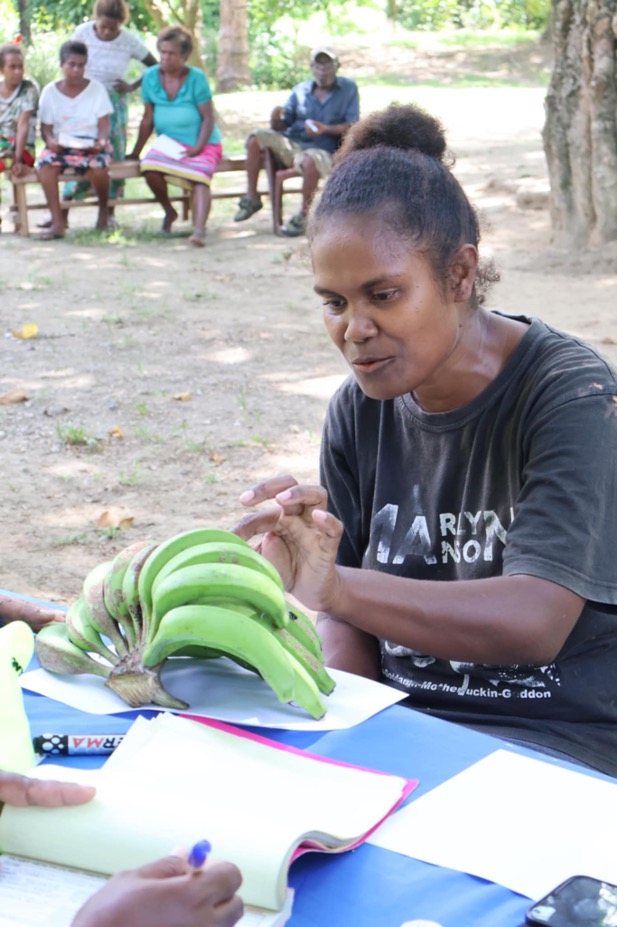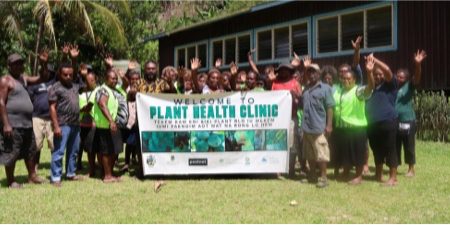Farmers in the Solomon Islands will soon be able to have access to frequent plant health clinic programs where they can take sick (infected) plants (crops and vegetables) to, for diagnosis and recommended treatment – much like we visit a local medical clinic when we are not feeling well (sick).
For Solomon Islands plant health clinic project (PHC) is headed by the Ministry of Agriculture and Livestock (MAL) in partnership with Kastom Garden Association (KGA) and Solomon Islands National University (SINU). Activities will first be targeting Honiara City and Guadalcanal, Western and Malaita provinces.
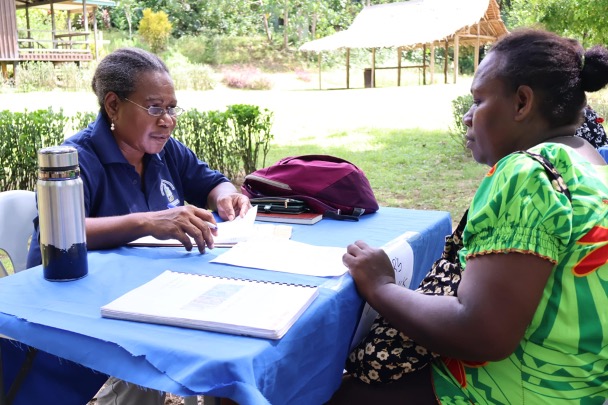
As part of rollout of activities, the MAL extension and research PHC team, this week conducted PHC Training of Trainers (TOT) for agriculture extension officers of Honiara Urban City, Guadalcanal and Rennel and Bellona provinces, at the Parangiju mountain lodge, central Guadalcanal province.
On Tuesday 1st Oct, the TOT participants were put to the task for their first field PHC engagement at Kwai village, Malango ward in Central Guadalcanal and the outcome was pleasing according to head of the training workshop Maria Gharuka.
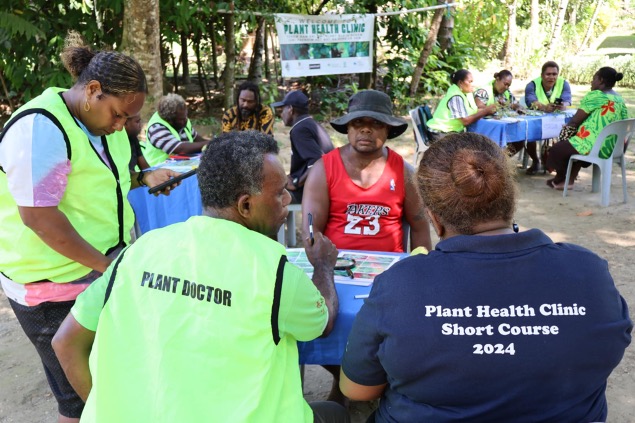
Their second PHC field activity is set for Thursday 3rd Oct. at the Korona Market area.
Already the MAL PHC team had conducted in Munda another TOT for agriculture officers in Western province.
Plant health clinics is an activity of a five-year regional project funded by ACIAR and known as Responding to emerging pest and disease threats to horticulture in the Pacific Islands.
It focuses on integrated crop management (ICM) and identifying plant health management strategies.
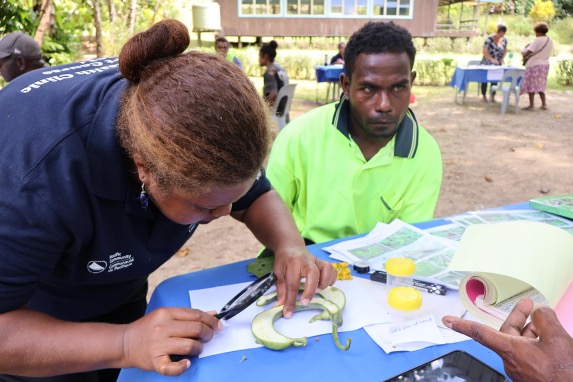
The project, Strengthening Integrated Crop Management Research in the Pacific Islands in Support of Sustainable Intensification of High-Value Crop Production, is funded by the Australian Centre for International Agricultural Research (ACIAR) with regional activities coordinated by the Secretariat of the Pacific Community (SPC).
Its aim is also to build and sustain the capacity to develop integrated crop management (ICM) strategies to support the sustainable intensification of high-value crop production for export and domestic markets in the Pacific Islands.

Recently plant health clinics were held at New Zealand Camp Bloody Ridge Zone 4, for farmers under the Honiara Urban City. Some of the key problems presented at the clinic were Gummy stem blight on water melon, Large cabbage moth on saladeer, Whiteflies on local chilly, 28 spotted beetles on eggplant, slippery kabis shoot borer, diamond back moth on saladeer, thrips on Guava fruit, lady bird beetle, bacterial soft rot on ball cabbage and too much used of fertilizer to Chinese cabbages.
Another PHC was also held at Aruligo, North West Guadalcanal for farmers under Guadalcanal province. Some of the key problems presented farmers there were broad mite on capsicum, Leaf miner on slippery cabbage, banana scab moth on banana fruit, sweet potato leaf folder on sweet potato leafs, white fly, scale and sooty mould on guava, cassava brown leaf spot on cassava, tomato fruit splitting on tomato fruit, and too much used of fertilizer to melon.
So far more than 40 extension officers from Honiara Urban City, Western, Malaita, Guadalcanal and Rennel and Belonna Provinces have undergone PHC training of trainers’ program with the aim to continue implementing plant health clinics in their respective provinces.
- MAL Media
